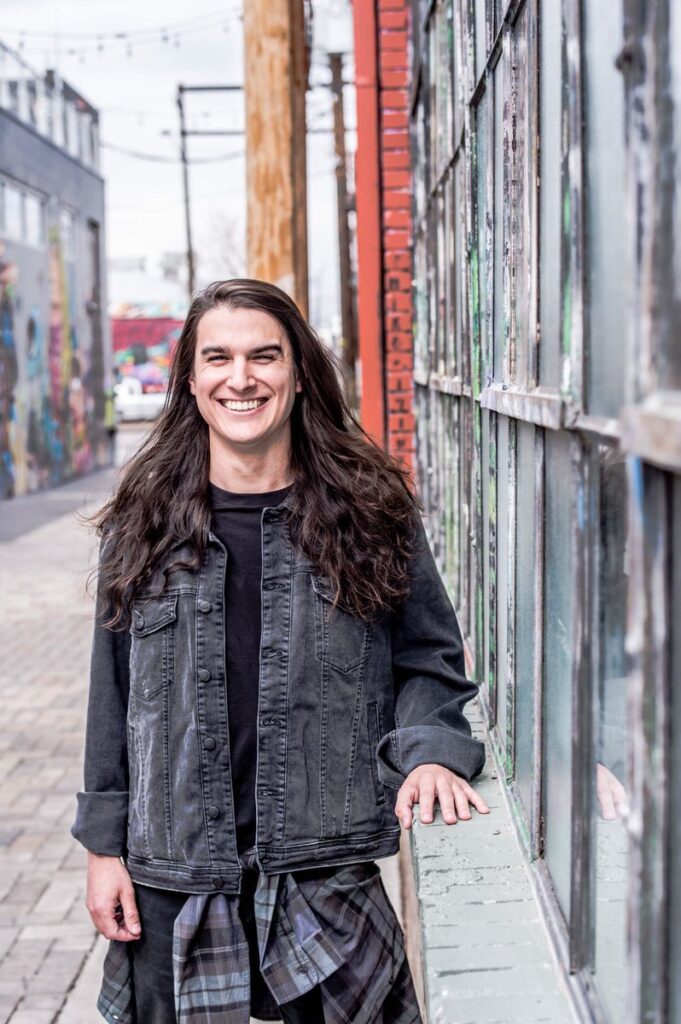Anderson Benoit Gallegos, known best by his stage name Mersiv, wanted a creative outlet, one that would allow him to put all his thoughts and feelings into tangible form. After a past few years characterized by a nearly constant touring schedule, Gallegos would get just that once the the pandemic positioned him at his home in Colorado with more than just a little time to kill.
It was a first for Gallegos, whose career as Mersiv began in 2016 when he packed up his car and made the move from his small hometown in northern Louisiana to Denver. Traces of his southern accent have been all but entirely eliminated—”If I drink alcohol, I guess it comes out,” Gallegos told Dancing Astronaut. In the meantime, Mersiv has become almost synonymous with the Colorado mountains and the city of Denver.
The city was already becoming known as the bass music capital in the United States, with Denver attracting big-name acts such as Illenium and GRiZ, by the time Gallegos made his move. With the famous Red Rocks Amphitheatre in easy driving distance and weekly shows at venues such as Black Box, Ogden Theatre, Temple, the Fox Theatre, and more in sight, the city’s thriving scene made it a hub for talented producers, and Mersiv was no exception.
At the time when he was first beginning his career, he would describe his music as “pretty dark loud.” He felt the phase was an apt description mainly because he was unsure of what genre his music fell into.
“Years ago, whenever I started producing, that was the way I described it to my friends,” he said. “I didn’t have a genre to describe it. So that name, that ‘pretty dark loud’ essence stuck with how I described it, like the feeling and the emotion. I know it’s super basic, but that’s the easiest way I could explain it to people.”
The three words continued to to sit at the forefront of his thought process when making music, and he realized that “pretty dark loud” would make a good album title. Five years later, it would become just that.
Mersiv’s debut project is open for interpretation, with Gallegos saying he doesn’t want to share too much of his own perspective on the LP in the interest of not overshadowing its public reception. One doesn’t necessarily need Gallegos to do that, given that tracks like “Afterlife,” “Ghosts,” and “If I Was A Raven” clearly reflect on loss.
“One thing that I really learned from this record is to embrace your emotions and that it’s okay to sit with them. Like, it’s okay to feel a certain way, whether it’s good or bad and that those feelings aren’t permanent. They can pass,” he told Dancing Astronaut.
Without the prospect of a tour over the pandemic, he was able to spend more time honing his skills as a producer, which resulted in a 20-track record that takes listeners through highs and lows.
“[Making the album] was like a therapy for me,” he said. “You know, dealing with a bunch of personal shit that life throws at you. Everyone has their things that they struggle with, and this was just a way to kind of get that out in an audio format. To express different feelings that I had and stuff. A lot of it was made during COVID-19 just ’cause I really had that time to be alone, be by myself, not have to worry about creating sets and shows, so it was a time where I could really dive in with myself and with my production and really experiment because I didn’t have a timeframe or anything. We didn’t know when COVID-19 was going to be done.”
In line with the intention of therapy, across its many forms, Pretty Dark Loud was created with the intention to heal. The tracks are cathartic in nature, both for Gallegos and for whomever is listening. “Severing String” reassures listeners “it’s okay, don’t get down, it’s alright,” the lyrics repeating like a mantra in an effort to soothe. “If I Was A Raven” finds him adding instrumentals to Elephant Revival’s “Raven Song.” The lyrics, “If I was a raven, I’d fly on through the heavens/ I’d fly to all my loved ones/ If I was a raven/ If memory’s worth saving, I’d savor the feeling/ Of knowing love and loving/ I’d remember the feeling” become balanced against dark instrumentals, the song’s beg to be reunited with those who have been lost.
“Those are very, very, very personal. That’s the point. If I can [speak to] whoever’s listening, that’s the goal for me is to relate to you, to help whoever’s listening to get through their struggle and their loss that they’re going through. Because everybody has to deal with it at some point in their life. Life isn’t forever. It sucks,” he said.
